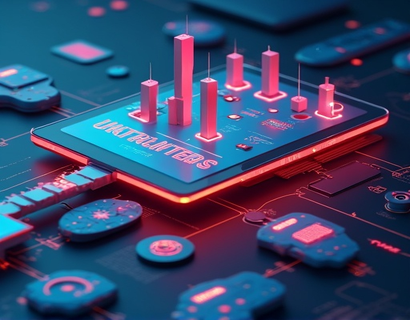Transforming Sports Community Engagement with AI-Driven Platforms
The sports community is undergoing a significant transformation with the advent of AI-driven platforms designed to revolutionize how enthusiasts, players, and followers interact and engage with each other. These advanced online spaces are not just about sharing updates and statistics; they are crafted to foster a deeper connection among sports lovers through real-time communication, personalized insights, and dynamic discussions. This article delves into how these platforms are reshaping the sports community experience, offering a more tailored and interactive environment for everyone involved.
Enhanced Real-Time Updates
One of the most significant advantages of AI-driven platforms in the sports community is the provision of real-time updates. Traditional sports websites and social media channels often lag in providing timely information, which can be frustrating for fans who want to stay updated on the latest happenings. With AI technology, these platforms can aggregate data from various sources, including official team websites, news outlets, and social media, to deliver instant notifications and updates. This ensures that users are always in the loop, whether it's a last-minute lineup change, a player's performance metrics, or the latest news about an upcoming match.
The integration of AI algorithms allows for a more intelligent and efficient dissemination of information. The system can prioritize updates based on user preferences, ensuring that each user receives the most relevant content. For instance, a user who follows a specific team will receive alerts about that team's activities, while minimizing irrelevant notifications. This personalized approach not only enhances user satisfaction but also increases the platform's utility as a one-stop-shop for all sports-related news.
Personalized Insights and Analytics
AI-driven platforms go beyond mere updates by offering personalized insights and analytics tailored to individual users. These insights can range from in-depth player statistics and team performance analyses to predictive models and trend forecasts. By leveraging machine learning algorithms, the platform can analyze vast amounts of data to provide users with unique perspectives and actionable information.
For example, a user interested in a particular player can receive detailed breakdowns of that player's performance in different scenarios, such as home games versus away games, or in specific match conditions. This level of granularity is invaluable for both casual fans and serious analysts who seek a deeper understanding of the game. Additionally, the platform can offer comparative analyses, allowing users to compare players or teams across various metrics, enhancing the overall viewing and engagement experience.
Dynamic and Interactive Discussions
The heart of any sports community is the discussion and interaction among its members. AI-driven platforms revolutionize this aspect by introducing advanced chat features that facilitate dynamic and engaging conversations. These chat systems are designed to be intuitive and user-friendly, encouraging more users to participate in discussions. The AI component enhances these interactions by providing smart moderation, content suggestions, and even language translation, breaking down barriers and fostering a global community.
One of the key features is the ability to create topic-specific channels or threads, allowing users to engage in focused discussions on particular aspects of the sport. AI can analyze the content of these discussions to surface the most relevant and engaging posts, ensuring that users see the content that matters most to them. Moreover, the platform can suggest connections with other users who share similar interests, expanding the user's network and enriching their community experience.
Enhanced User Experience Through AI Moderation
Maintaining a positive and respectful community environment is crucial for user retention and engagement. AI-driven platforms employ sophisticated moderation tools to ensure that discussions remain constructive and free from harassment or spam. These tools use natural language processing to monitor chat content in real-time, identifying and flagging inappropriate behavior. The AI can automatically enforce community guidelines, such as removing offensive posts or temporarily suspending users who violate the rules.
This level of automated moderation not only reduces the workload on human moderators but also ensures a consistent and fair enforcement of community standards. Users can focus on engaging in meaningful conversations without the distraction of negative interactions. The AI system can also learn from user feedback, continuously improving its moderation capabilities to create a safer and more enjoyable environment for all participants.
Personalized Content Recommendations
Another significant feature of AI-driven platforms is their ability to provide personalized content recommendations. By analyzing user behavior, preferences, and interaction patterns, the platform can curate a customized feed of articles, videos, and discussions that align with each user's interests. This personalized approach ensures that users are constantly engaged with content that resonates with them, reducing the likelihood of them feeling overwhelmed by irrelevant information.
The recommendation algorithm can also introduce users to new content and perspectives they might not have discovered otherwise. For instance, a user who primarily follows a particular team can be introduced to analysis and discussions from other teams or experts in the field, broadening their knowledge and appreciation of the sport. This not only keeps users engaged but also fosters a more inclusive and diverse community.
Community Building and Engagement Tools
Beyond individual interactions, AI-driven platforms offer robust tools for building and strengthening the overall community. These tools include features for creating and managing groups, hosting live events, and organizing challenges or contests. AI can assist in the formation of groups based on shared interests or geographic locations, making it easier for users to connect with like-minded individuals.
Live events, such as Q&A sessions with players or analysts, can be seamlessly integrated into the platform, with AI handling the logistics of scheduling, promotion, and real-time interaction. Users can ask questions, receive instant responses, and engage with the featured guests in a dynamic and immersive way. Additionally, AI can help organize community challenges, such as predicting match outcomes or participating in trivia contests, further enhancing user engagement and fostering a sense of competition and camaraderie.
Accessibility and Inclusivity
AI-driven platforms are designed with accessibility and inclusivity in mind, ensuring that the sports community is open to everyone, regardless of their background or abilities. The platform can offer features such as text-to-speech, language translation, and customizable interfaces to accommodate users with different needs. This inclusivity not only broadens the user base but also creates a more welcoming and diverse community.
For example, users with hearing impairments can benefit from real-time transcriptions of live chats and events, while those who speak different languages can engage more freely through translation features. This commitment to inclusivity ensures that the platform is a space where everyone can participate and contribute, enriching the overall community experience.
Data-Driven Decision Making
For teams, coaches, and players, AI-driven platforms provide valuable data-driven insights that can inform decision-making processes. By analyzing vast amounts of data, the platform can offer predictive analytics, performance trends, and strategic recommendations. This data can be crucial for optimizing training regimens, improving team dynamics, and making informed tactical decisions during matches.
For instance, a coach can use the platform to review a player's performance data over time, identifying areas of strength and weakness. This information can be used to tailor training sessions and game strategies, ultimately enhancing the player's performance. Similarly, teams can analyze opponent data to develop more effective game plans, gaining a competitive edge. These data-driven insights, made accessible through the platform, empower users to make more informed and strategic decisions.
Building a Sustainable Community
The long-term success of an AI-driven sports community platform hinges on its ability to build and sustain a vibrant and active community. This involves continuous engagement, regular updates, and the introduction of new features based on user feedback. AI can play a crucial role in this process by analyzing user interactions and feedback to identify trends and areas for improvement.
The platform can use AI to conduct sentiment analysis on user comments and feedback, gauging the overall mood and identifying specific pain points. This data can inform the development of new features or the enhancement of existing ones, ensuring that the platform remains relevant and valuable to its users. Additionally, AI can help in creating targeted marketing campaigns to attract new users and retain existing ones, fostering a growing and engaged community.
Conclusion
The integration of AI technology into sports community platforms is revolutionizing the way enthusiasts, players, and followers interact and engage with each other. By providing real-time updates, personalized insights, and dynamic discussions, these platforms are creating a more connected and enriching experience for all users. The advanced chat features, AI moderation, and community building tools not only enhance individual interactions but also foster a stronger, more inclusive community. As AI continues to evolve, the potential for further innovation in sports community engagement is vast, promising an even more immersive and meaningful experience for everyone involved.










































